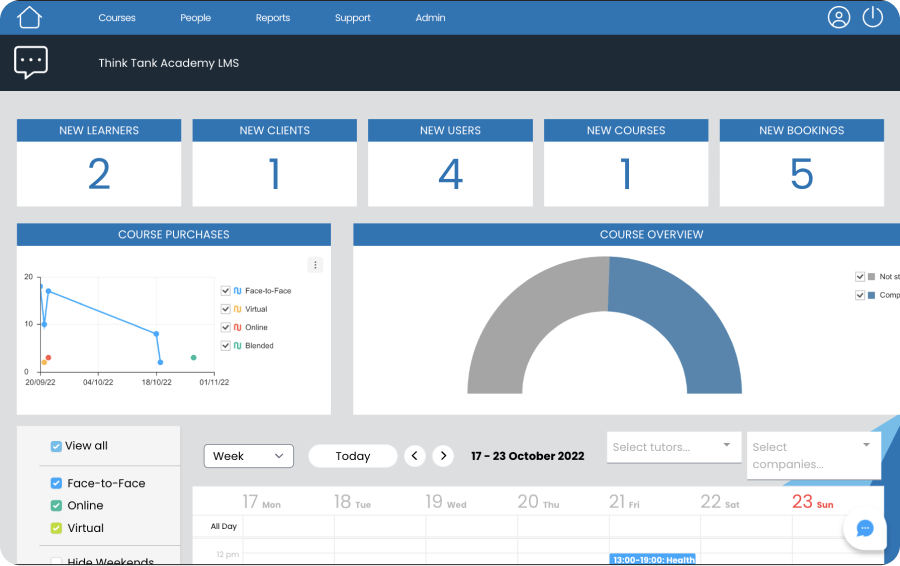Secondary English tuition plays a pivotal role in shaping students for academic excellence. This article presents 10 pragmatic strategies that constitute the backbone of effective English tuition, providing a focused and direct approach to mastering the language.
Comprehensive Assessment and Customisation
One fundamental aspect defining effective secondary English tuition is the initial comprehensive assessment of each student’s strengths and weaknesses. This insightful analysis forms the bedrock of a tailored curriculum, ensuring that the learning experience is customised to address individual needs. This approach is instrumental in fostering targeted improvement areas and creating a foundation for sustained language development.
Focus on Core Language Skills
Another key strategy involves a concentrated emphasis on the core language skills: reading, writing, listening, and speaking. By prioritising these fundamental skills, tutors provide students with a structured and holistic learning experience. This approach accelerates overall language proficiency and ensures that students develop a well-rounded mastery of the language.
Interactive Learning and Engaging Resources
Utilising interactive learning tools and engaging resources is a hallmark of effective secondary English tuition. Tutors incorporate multimedia, real-world examples, and relevant content to bring vibrancy to the tuition experience. This dynamic approach not only enhances student engagement but also makes the learning process more enjoyable and effective.
Regular Diagnostic Assessments
To measure progress and identify persistent challenges, regular diagnostic assessments play a crucial role in effective English tuition. These assessments provide tutors with valuable insights into a student’s evolving proficiency, allowing them to tailor their instructional strategies accordingly. The ongoing diagnostic process ensures a dynamic and adaptive learning environment.
Incorporation of Exam Strategies
Secondary English tuition in Singapore often revolves around preparing students for standardised exams. A strategic approach involves integrating exam-specific strategies into the curriculum. This equips students with the skills needed to navigate examination formats successfully, instilling confidence and competence in facing academic assessments.
Feedback-Driven Improvement
A fundamental strategy involves providing constructive feedback on assignments and assessments. This feedback-driven approach fosters continuous improvement by pinpointing areas of strength and weakness. It creates a supportive learning environment where students can actively engage with their development, contributing to long-term academic success.
Effective Time Management Techniques
Teaching effective time management techniques is crucial for students facing demanding academic schedules. Balancing study commitments with extracurricular activities is an essential skill imparted through English tuition. This strategic focus on time management contributes to sustained academic success and equips students for future challenges.
Incorporation of Technology
Integrating technology into tuition methods enhances the learning experience for students. Online resources, interactive platforms, and digital tools not only cater to the tech-savvy generation but also offer diverse avenues for skill development. This strategic use of technology ensures that English tuition remains relevant and engaging.
Cultivation of Critical Thinking Skills
Beyond language proficiency, secondary English tuition focuses on cultivating critical thinking skills. Encouraging students to analyse, question, and interpret texts fosters a deeper understanding of language and its nuances. This strategic emphasis on critical thinking contributes to the development of well-rounded and analytical individuals.
Vocabulary Expansion Strategies
A strategic emphasis on vocabulary expansion forms a key aspect of English tuition. Regular exposure to diverse vocabulary, coupled with techniques for effective memorisation and application, enriches students’ language capabilities. This strategic focus on vocabulary equips students with a versatile and nuanced command of the English language.

In conclusion, these 10 strategies collectively form a comprehensive and strategic framework for effective secondary English tuition in Singapore. A professional and targeted approach to language learning not only equips students with the necessary skills but also instals a lifelong appreciation for the power and precision of the English language. The strategic implementation of these methods ensures that English tuition remains a cornerstone of academic excellence and language mastery. Contact The Thought Tailor today for more information.






